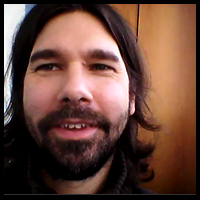Hozzászólások: 23
Nyelv: English
sudanglo (Profil megtekintése) 2014. január 12. 12:58:11
There are no hits for kio/kiu/kia estas la koloro.
There are a couple of hits for Kia estas via nomo in older texts but there also a couple of hits for kio est follow by nomo.
Anyway, if nigra, blanka, ktp are considered to be the names of colours as well as qualities there is no tension between kio estas la koloro and the reply nigra, blanka ktp, if also the reply to kio estas via nomo can be a name.
Parenteze, kiun koloron havis la hundo?
ludomastro (Profil megtekintése) 2014. január 13. 3:20:19
Dankon!
sudanglo (Profil megtekintése) 2014. január 13. 11:13:31
But this solution doesn't help in the matter of the colour of the dog. I doubt that anybody would say kiel koloriĝis la hundo.
Usually it is pretty obvious what you should say in Esperanto, but where uncertainty arises and causes debate, it is often because a certain form doesn't seem quite 'logical'.
Someone mentioned that kiukolora is common but this is not supported by the Tekstaro. There is a single hit for kiun koloron havis.
Kiun koloron ŝia vesto havis, mi ne povis distingi
harlandski (Profil megtekintése) 2015. december 16. 16:39:31
What I tend to do if I want to test a way of saying something in Esperanto is to Google my ideas, enclosed in quotation marks.
These are the results right now:
- "kiun koloron havas" - 2010 hits
- "kiukolora estas" - 487 hits
- Question: "Kiukolora estas la erinaco?"
- Answer: "Bruna kaj blanka."

erinja (Profil megtekintése) 2015. december 16. 17:14:17
Just like if someone asks the time, you might sometimes say "It's eight thirty" and you might sometimes say "It's half past eight" (or if you're British "It's half eight"). No reason to stick rigidly to one or the other when there are multiple correct ways to say something.
Christa627 (Profil megtekintése) 2015. december 16. 22:51:34
Just a quick note on the original post: remember that the ki- word is the question word, so you don't need "ĉu". Otherwise you get "Was your dog what color?" which is rather confusing (even moreso in Esperanto that in English).
Christa627 (Profil megtekintése) 2015. december 16. 22:59:37
sudanglo:I should have mentioned that What is your name is quite often expressed in Esperanto as Kiel vi nomiĝas, which sidesteps the issue if Kio Kiu Kia estas.Unless you have a dog that used to be white, but one day it walks into the room and it's some other color; then you might say "Kiel koloriĝis la hundo??"; "How did the dog become colored??".
But this solution doesn't help in the matter of the colour of the dog. I doubt that anybody would say kiel koloriĝis la hundo.
harlandski (Profil megtekintése) 2015. december 17. 11:00:54
erinja:Why not mix it up a little and use both?Thank you, and I totally agree, but on the other hand I want to keep things as simple as possible for my children at the moment. I think I'll add in other ways of saying things once they have one pattern down pat.
Just like if someone asks the time, you might sometimes say "It's eight thirty" and you might sometimes say "It's half past eight" (or if you're British "It's half eight"). No reason to stick rigidly to one or the other when there are multiple correct ways to say something.
harlandski (Profil megtekintése) 2015. december 17. 11:03:02
Christa627:I'd probably ask "De kiu koloro estis la hundo?" but that's probably just Spanish influence. "Kiukolora estis..." and "Kiun koloron havis..." are both comprehensible, grammatical options, as is "Kiu estis la koloro de...".Thanks, it's good to have options
 It's a really nice thing about Esperanto that intelligibility seems to be the main thing, not adherence to certain idiomatic ways of saying things.
It's a really nice thing about Esperanto that intelligibility seems to be the main thing, not adherence to certain idiomatic ways of saying things. Kirilo81 (Profil megtekintése) 2015. december 17. 11:19:51
harlandski:What I tend to do if I want to test a way of saying something in Esperanto is to Google my ideas, enclosed in quotation marks.Here I am.
[...]
So it seems both are OK, but the former is more used.
[...]
If anyone thinks I'm making a terrible mistake, please let me know before it's too late!
 I think it is a mistake to use Google in order to find out whether a word/structure in Esperanto is fine or not. In Google you find every mistake beginners make, not discernible from the use of competent speakers.
I think it is a mistake to use Google in order to find out whether a word/structure in Esperanto is fine or not. In Google you find every mistake beginners make, not discernible from the use of competent speakers.There is an order to follow in order to know what is wrong or good in Esperanto:
1. Check the Fundamento → No result? Go on to 2.
2. Check how Zamenhof wrote → No result? Go on to 3.
3. Check how good authors wrote/write → No result? Go on to 4.
4. Use the expression which fits you best (but there are hardly such gaps in the language left, preferably ask someone before, like e.g. in lernu)
For 2./3. tekstaro.com is a good address.



